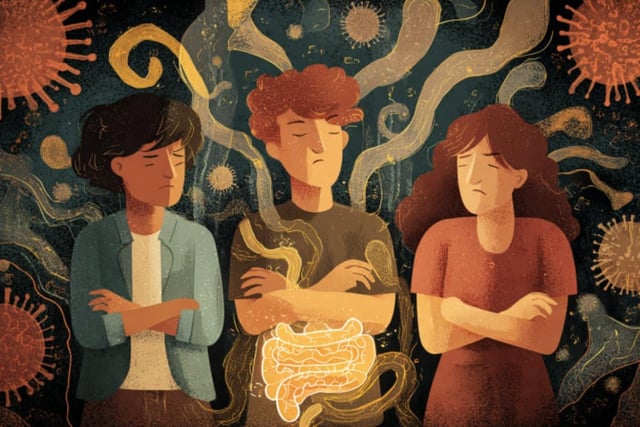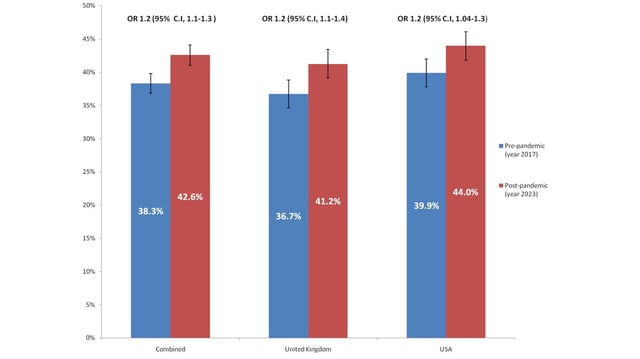Overview
- Researchers used identical Rome Foundation diagnostic tools in nationally representative UK and US samples from 2017 and 2023 to enable a direct comparison of disorder rates.
- Overall prevalence of disorders of gut-brain interaction climbed from 38.3% before the pandemic to 42.6% after.
- Irritable bowel syndrome increased by 28%, rising from 4.7% to 6%, while functional dyspepsia jumped nearly 44% from 8.3% to 11.9%.
- People experiencing long COVID were significantly more likely to develop these disorders and reported worse anxiety, depression, and quality of life.
- Healthcare bodies and researchers are calling for updated clinical care models and expanded investigation into the gut-brain axis in light of these findings.


